Beet Juice as Brain Food For Older Adults
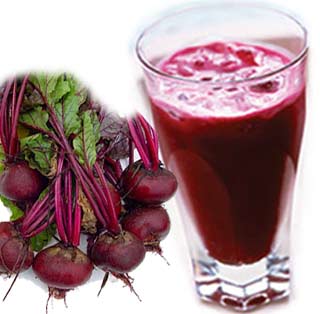 A study from Wake Forest University demonstrates for the first time that drinking beet juice (about 16 ounces a day for a week) increases blood flow to the brain in older adults. More specifically:
A study from Wake Forest University demonstrates for the first time that drinking beet juice (about 16 ounces a day for a week) increases blood flow to the brain in older adults. More specifically:
“The MRIs showed that after eating a high-nitrate diet, the older adults had increased blood flow to the white matter of the frontal lobes – the areas of the brain commonly associated with degeneration that leads to dementia and other cognitive conditions.”
Brains scans such as MRIs provide strong evidence. Beets are one food source high in nitrates others include celery, spinach and cabbage.
Interested to hear from readers that use beet juice or other high-nitrate food stuffs as part of their next brain diet.
Categories: Cognitive Decline, Diet, Memory and Learning, Older Adult Tags:
Light Sleep Enough to Integrate New Memories
In the Next Brain Blog we review techniques that are proven to enhance brain function and cognitive performance. Sometimes the techniques are mundane such as proper nutrition, aerobic exercises and sleep. But even when they are mundane we search for the twists or specifics that can transform the obvious into a unique insight or practice.
Take sleep for example. Earlier posts discussed how dreaming can improve responses to a maze navigation problem by a factor of 10, how you can focus your dreaming to solve problems using a specific 5 -step method and the specifics (duration, location, use of caffeine) for catnaps that have brain boosting effects. What this tell us is that even though a technique is ordinary, there is an art to using it to improve brain function and cognitive performance.
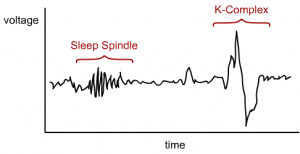 A new article in the Journal of Neuroscience illustrates this point. Sleep Spindle Activity is Associated With the Integration of New Memories and Existing Knowledge demonstrates that subjects that reach at least stage two sleep have deeper learning of new vocabulary than those subjects that don’t sleep. A sleep spindle is a special form (burst) of brainwave that represents onset of stage two sleep. This is about half the time we are asleep when we are not in REM. Stage two is a period of light sleeping.
A new article in the Journal of Neuroscience illustrates this point. Sleep Spindle Activity is Associated With the Integration of New Memories and Existing Knowledge demonstrates that subjects that reach at least stage two sleep have deeper learning of new vocabulary than those subjects that don’t sleep. A sleep spindle is a special form (burst) of brainwave that represents onset of stage two sleep. This is about half the time we are asleep when we are not in REM. Stage two is a period of light sleeping.
Bottom line – a light sleep is enough to get our thoughts together and associate new words with existing knowledge to deepen learning.
Categories: Memory and Learning, Sleep Tags:
2nd Language Boosts Cognitive Control & Reserve
 According to research recently reported in the Wall Street Journal, Building a More Resilient Brain, you can improve thinking and brain health by learning a new language. There is some evidence that learning a second language can improve your cognitive control (stop paying attention to one thing and focus on another) and may stave off the effects of dementia for several years by building up cognitive reserve. Unfortunately, it is not know when in life it is best to learn the language and if you need to use it daily to get these benefits.
According to research recently reported in the Wall Street Journal, Building a More Resilient Brain, you can improve thinking and brain health by learning a new language. There is some evidence that learning a second language can improve your cognitive control (stop paying attention to one thing and focus on another) and may stave off the effects of dementia for several years by building up cognitive reserve. Unfortunately, it is not know when in life it is best to learn the language and if you need to use it daily to get these benefits.
Learning a second language is a major undertaking but does promise to improve brain function and cognitive performance. Very interested to hear from readers that have learned a second language and believe it has had brain boosting effects.
Categories: Child, Cognitive Decline, Memory and Learning, Mental Focus, Older Adult, Training Tags:
Nuts Known to Improve Cognition
 Posit Science, a leading provider of brain training software, has a interesting post on Nuts for Brain Health. They claim:
Posit Science, a leading provider of brain training software, has a interesting post on Nuts for Brain Health. They claim:
- Walnuts, almonds and hazelnuts have scientific studies that support claims for brain boosting effects
- Peanuts have preliminary evidence that support their role in brain health
- Other nuts that are often mentioned for brain health including pecans, chestnuts and cashews lack published scientific studies.
A useful summary for those considering including nuts in a Next Brain diet. Interested to hear from readers that eat nuts to improve brain function and cognitive performance.
Categories: Cognitive Decline, Diet, Memory and Learning Tags: vitamins
Simple Study Skills That Light Up Your Brain!
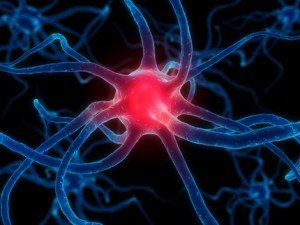 A colleague shared an interesting New York Times article, Forget What You Know about Good Study Habits. The core idea:
A colleague shared an interesting New York Times article, Forget What You Know about Good Study Habits. The core idea:
“In recent years, cognitive scientists have shown that a few simple techniques can reliably improve what matters most: how much a student learns from studying. The findings can help anyone, from a fourth grader doing long division to a retiree taking on a new language. But they directly contradict much of the common wisdom about good study habits, and they have not caught on.”
The few simple techniques uncovered by cognitive scientist for improving how we study include:
1. Regularly change or alternate the room or environment you study in.
2. Study or work related but not identical topics or study tasks in one sitting. For example, when learning a language study vocabulary, written translation and speaking all in the same session.
3. Space study sessions out over time rather than cramming. Alternate study with simple physical activities.
4. Prepare and take mock tests yourself before taking actual tests.
Simple yes but not commonly practiced by students or adult learners engaged in systematic study. Yet they are proven to “light up the brain” or improve our learning performance.
Interested to hear from readers about other study techniques they have found effective.
Categories: Child, College Student, Memory and Learning, Older Adult, Training Tags: study skills
Memory Champions Win by Training Not Genetics
 Organized and professionally managed memory contests are growing in popularity worldwide. For example, the United Kingdom Open Memory Championship was just held in August. Many amazing feats were recorded including a mental athlete that was able to memorize a deck of 52 cards in sequence in 80 seconds.
Organized and professionally managed memory contests are growing in popularity worldwide. For example, the United Kingdom Open Memory Championship was just held in August. Many amazing feats were recorded including a mental athlete that was able to memorize a deck of 52 cards in sequence in 80 seconds.
The World Memory Sports Council captures data on competitions, memory events and records. Events range from memorizing the order of cards to historic dates and linking names and faces.
To qualify as a grand master of memory you must achieve the memorization of:
- 100 numbers in an hour
- 10 decks of cards in an hour (520 cards)
- One deck in two minutes or under
No easy feat. It is interesting to note that grand masters, record holders and winners in the various national memory championship tend to claim the same thing:
It does not take high IQ or other special mental gifts to be a memory champion. Instead it takes discipline and the willingness to train intensively.
This is great new for readers of the Next Brain Blog. It suggests that systematic training can greatly improve brain function and cognitive performance. It also provides a context to test your brain fitness and compete in a national or international memory championship.
Very interested to hear from readers that participate in the mind sport of memory. What techniques do you use to train? Has this training improved your cognitive performance in everyday life?
Categories: Memory and Learning, Mental Focus, Training Tags: contest
Berries Help to Unclog Your Brain
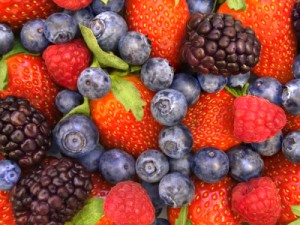 New research shows that blueberries, strawberries and acai berries can promote brain health. They appear to work by restoring overactive microglia cells that are responsible for removing biochemicals that would otherwise interfere with brain function.
New research shows that blueberries, strawberries and acai berries can promote brain health. They appear to work by restoring overactive microglia cells that are responsible for removing biochemicals that would otherwise interfere with brain function.
The researchers suggest eating whole fruits to get the maximum effect. Interested to hear from readers that eat berries for brain health. What berries do you eat and why?
Categories: Cognitive Decline, Diet, Memory and Learning Tags: fruit
Our Brains Are Optimized for Ancient Ways
 Found an interesting blog post that reviewed five recent scientific studies on protein SIRT1 and its possible connection to improved brain function and cognitive performance. The post includes 10 steps to enhanced brainpower many of which we have covered in the Next Brain blog. In paraphrased form these include:
Found an interesting blog post that reviewed five recent scientific studies on protein SIRT1 and its possible connection to improved brain function and cognitive performance. The post includes 10 steps to enhanced brainpower many of which we have covered in the Next Brain blog. In paraphrased form these include:
- Eat and exercise like a wild ancient human
- Take supplements including fish oil, vitamin D and resveratrol.
- Eat blueberries, drink coffee or tea and limit alcohol
- Be an aggressive and continious learn
- Get plenty of sleep
The conclusion is:
“The research basically says: to enhance your brain, you should adjust your lifestyle, diet, and use of compounds or drugs to increase levels of SIRT1 in the brain. The target: an enhanced mind — as alert as those of our ancestors — that thinks more clearly, stays smart, and learns longer.”
The underlying theme here is that the lifestyle and diet of wild ancient humans is the context in which much of our brain development occurred. This means our brains are naturally optimized to work best under those conditions. As conditions are radically different today, reproducing the ancient ways as describe above is one strategy for enhancing cognitive performance.
Categories: Ancient Ways, Memory and Learning, Mental Focus Tags: vitamins
Mental Training Techniques of Top Athletes
Top athletes are not only physically fit but also mentally fit. They use mental training routines just as they use physical training routines. Fortunately, many if not all of their mental training routines can be used to improve brain function or enhance cognitive performance in non-sports related contexts.
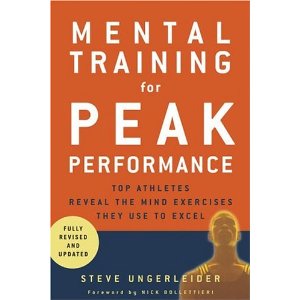 A great resource for exploring these techniques is Steven Ungerleider’s book, Mental Training for Peak Performance. He offers an introduction to mental training and then covers specific techniques including affirmations, self-talk, breathing, mediation, mental snapshots, guided-imagery, visual rehearsal and even dreams. We have covered many of these techniques in the Next Brain blog, but Dr. Ungerleider brings refinements and deeper insights to nearly all of them.
A great resource for exploring these techniques is Steven Ungerleider’s book, Mental Training for Peak Performance. He offers an introduction to mental training and then covers specific techniques including affirmations, self-talk, breathing, mediation, mental snapshots, guided-imagery, visual rehearsal and even dreams. We have covered many of these techniques in the Next Brain blog, but Dr. Ungerleider brings refinements and deeper insights to nearly all of them.
Take for example the use of guided-imagery. This is a technique involves forming vivid mental images and controlling them to practice “in your head” and manage anxiety and performance stress. Ungerleider’s approach stresses understanding how the individual experiences the image – sight, hearing, touch and feel. Other approaches I’ve seen assume we experience images with sight only. He has even developed a Sport Imagery Questionnaire (pgs. 56-57) to help you figure out how you experience images. You assess yourself in four different situations – practicing alone, with others, watching a teammate and competing – and rate how you experience images (1-5) in terms visual (what you saw), auditory (what you heard), kinesthetic (what you felt) and mood (how you felt). You use the results to customize routines for generating and controlling vivid imagery.
I completed the questionnaire and was surprised to find that mood played a key role in how I experience mental imagery. I used this to change my approach to guided-imagery with some good results.
Interested to hear from readers about their experience using the mental training techniques inspired by sports.
Categories: Books, Manage Emotions, Memory and Learning, Mental Focus, Perception, Training Tags: sports
Mindless Reading Lowers Cognitive Performance – How Do We Stop?
 There are two kinds of mindless reading. The first kind, often associated with guilty pleasure, involves reading something just for fun. There is no expectation that you will learn or grow. A trashy novel is a good example. The second kind of mindless reading involves moving your eyes across and down a page while you are thinking about something else or otherwise not paying attention. You are not being mindful of the written word. Re-reading the same paragraph over and over or getting to the bottom of a page and not remembering a single word are typical examples.
There are two kinds of mindless reading. The first kind, often associated with guilty pleasure, involves reading something just for fun. There is no expectation that you will learn or grow. A trashy novel is a good example. The second kind of mindless reading involves moving your eyes across and down a page while you are thinking about something else or otherwise not paying attention. You are not being mindful of the written word. Re-reading the same paragraph over and over or getting to the bottom of a page and not remembering a single word are typical examples.
According to researchers we often zone out, even when we are trying to read for understanding or receive prompts to pay attention. This suggests:
For those interested in improving cognitive performance, mindless reading presents a major opportunity.
But how can we keep from reading mindlessly when we don’t want to? I’ve spent sometime researching that question and have come up empty. Despite its prevalence there has been very little scientific research done on mindless reading. What has been done shows that it lowers the cognitive performance of reading and lowers test scores.
 In studies subjects that experience mindless reading have reported being distracted by hunger, thirst, sleepiness, boredom and sexual desire. Making sure you are rested, well fed and the rest to avoid mindless reading makes good common sense. But what else can be done?
In studies subjects that experience mindless reading have reported being distracted by hunger, thirst, sleepiness, boredom and sexual desire. Making sure you are rested, well fed and the rest to avoid mindless reading makes good common sense. But what else can be done?
Very interested to hear from readers about specific techniques for decreasing the frequency of unwanted mindless reading.
Categories: Memory and Learning, Mental Focus Tags: speed reading
